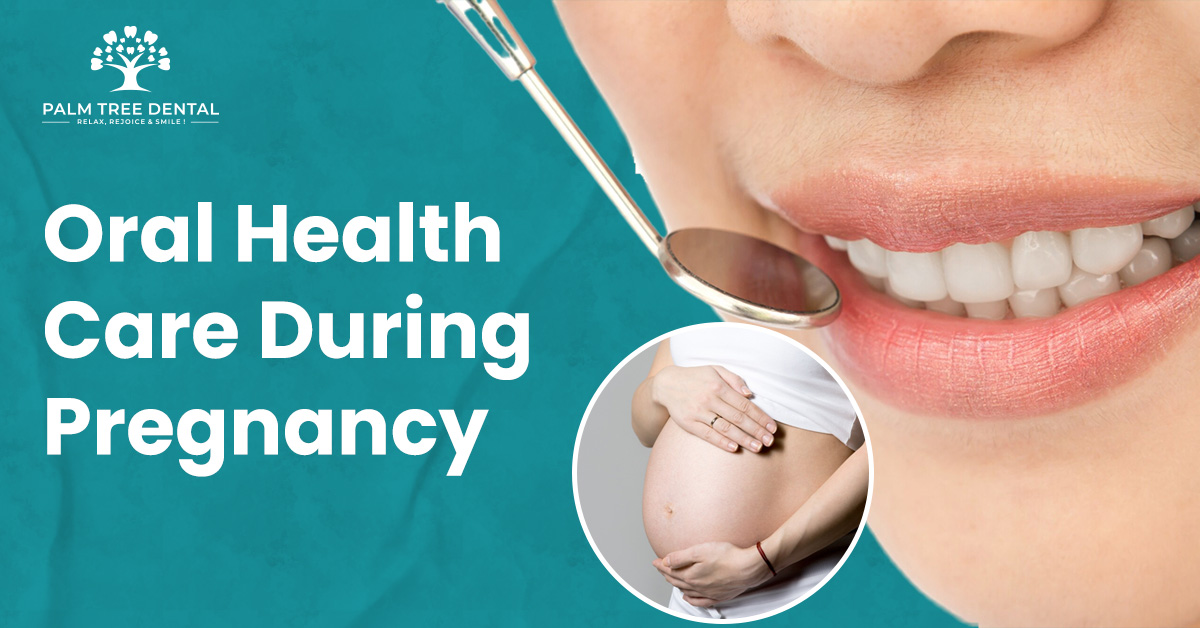Pregnancy for parents around the world is a time of great happiness and anticipation, but at the same time expectant mothers need to pay more attention to their health, and that includes oral health too. Due to various hormonal and physical changes oral health may change throughout pregnancy. In this blog, we will discuss taking care of oral health during pregnancy.
Pregnancy and Oral Health
During pregnancy, several oral health problems can arise that are mostly related to hormonal changes, which affect teeth and gums. Some oral health issues have an increased risk because of these changes. Some common problems related to the oral health of pregnant women are as follows::
Gingivitis During Pregnancy
Pregnancy induced gingivitis is a common dental issue caused by hormonal changes during pregnancy. Symptoms include inflamed, sensitive, and bleeding gums. Untreated gingivitis can lead to severe consequences, such as preterm delivery and low birth weight. Gingivitis management is crucial for both mother and baby’s health. Pregnant women can protect themselves and their unborn child by practicing strict oral hygiene and regular dental visits.
Cavities
Pregnancy-related factors like diet changes, sugary food cravings, and morning sickness increase tooth decay risk. Elevated mouth acidity levels from vomiting can erode tooth enamel, while saliva neutralizes acids. Poor dental health during pregnancy increases the risk of cavity-causing germs passing to the unborn child. Pregnant women should prioritize oral health, visit dentists frequently, and maintain good hygiene habits. Preventing dental decay in the unborn child is also crucial.
Tumors
Pyogenic granulomas, or pregnancy tumors, are harmless, non-cancerous growths on the gums during pregnancy. They are red, raw-looking, and bleed easily. They usually disappear after birth but can cause discomfort and difficulty in eating, talking, or brushing teeth. Dentists may recommend professional cleaning or surgical removal for large or painful growths. Pregnant mothers should visit their dentist for proper treatment and dental health.
Erosion
Morning sickness increases stomach acid exposure, leading to enamel erosion during pregnancy. Good oral hygiene, particularly after vomiting, and seeking dental guidance are essential for reducing enamel erosion risk for both mother and baby.
Dry Mouth
Dry mouth, induced by pregnancy, can be caused by hormonal shifts, dehydration, and certain medications. Saliva’s vital functions, such as neutralizing acids and preventing tooth decay, can lead to oral hygiene issues. Pregnant women should drink more water, brush regularly, and consult a dentist.
Tooth Mobility
Pregnant women face dental health concerns due to tooth movement caused by hormonal shifts during pregnancy. This loosens teeth’s ligaments and bones, causing discomfort and difficulty in brushing and flossing. It also increases the risk of gum disease and tooth decay, potentially leading to infections. Pregnant women should schedule appointment with dentists for personalized treatment and maintain proper dental hygiene.
Maintaining Good Dental Hygiene During Your Pregnancy
Pregnant women should prioritize their oral health to reduce the risk of dental disorders. Regular dental checkups and cleanings are essential for maintaining healthy teeth and gums. A time-saving dental hygiene program includes using fluoride toothpaste, floss, and brushing twice daily. Rinsing the mouth with water or fluoride mouthwash after eating can help neutralize stomach acids. A healthy diet rich in nutrients can prevent tooth decay and enamel erosion. Drinking plenty of water and chewing sugar-free gum can help with dry mouth. Using a mouthguard for bruxism can also help. Getting regular dental care is crucial for maintaining oral health during pregnancy.
Conclusion
Pregnant women face increased risk of oral health problems due to hormonal and physiological changes during pregnancy. Regular dental checkups, improved oral hygiene, and healthy lifestyle choices can help reduce discomfort and prevent issues. Proactive efforts to maintain good dental health benefit both mother and child.

